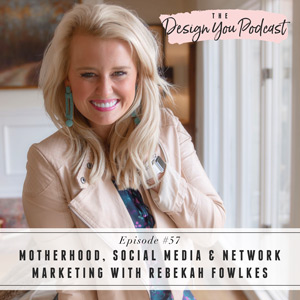
If you look at me and think, “Gosh, how does she do it all?” you’re going to be amazed by my next guest on the show, Rebekah Fowlkes. She’s one of my favorite people, and if you don’t already know who she is, you need to check her out!
Rebekah is a network marketing professional and social media strategist, and she’s a true powerhouse of a woman. One of her specialties lies in social media, so we delve into the intricacies of how she got started and the mindset behind her presence on Instagram. She’s a pro at balancing motherhood and family with work and she’s sharing how she does it all on the podcast today.
Our conversation was so fun and we cover so many important topics around motherhood and connecting with others. Rebekah is an amazing example of authenticity and confidence when it comes to putting yourself out there, and you’ll get an insight into how you can do that too!





